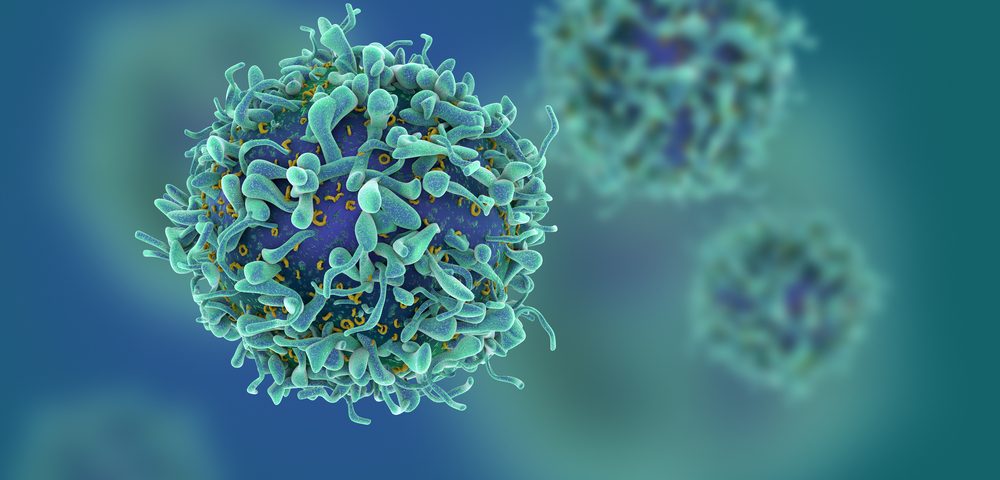Non-small cell lung cancer (NSCLC) patients with PD-L1 protein in their tumors lived significantly longer when treated with the immunotherapy Keytruda (pembrolizumab) than standard platinum-based chemotherapy, a Phase 3 clinical trial shows.
“Keytruda has now shown a significant survival benefit compared with chemotherapy for patients with locally advanced or metastatic nonsquamous or squamous NSCLC” whose tumors have PD-L1, Roger M. Perlmutter, the president of Merck Research Laboratories, said in a press release.
“Keytruda is a foundational treatment for NSCLC, and has consistently demonstrated a survival benefit as monotherapy [a stand-alone therapy], or in combination with chemotherapy, in the treatment of metastatic lung cancer,” he said. “We sincerely thank the patients and clinical [trial] investigators for their participation in this important study.”
The global KEYNOTE-042 trial (NCT02220894) compared Keytruda and standard chemo as a stand-alone, first-line therapy for 1,274 patients with locally advanced or metastatic NSCLC.
Patients were randomly assigned to either a 200-mg dose of Keytruda every three weeks or one of two chemotherapy regimens over a maximum of six cycles. The chemo regimen for patients with squamous (epidermoid) NSCLC was carboplatin plus Taxol (paclitaxel). For nonsquamous NSCLC patients, it was carboplatin plus Alimta (pemetrexed), with an option of adding Alimta.
An independent review board’s analysis showed that Keytruda met the trial’s main objective of increasing patients’ overall survival more than chemo. Its safety profile matched that seen in previous studies of patients with advanced NSCLC.
Researchers will now assess the progression-free survival of Keytruda patients — the length of time it takes for their cancer to worsen. A secondary goal of the trial was to see if Keytruda improved progression-free survival better than chemotherapy.
Merck plans to present the KEYNOTE-042 results at a medical conference and submit them to regulatory authorities worldwide.
“Improvement in overall survival is the ultimate objective in the treatment of advanced lung cancer,” said Tony Mok, MD, a professor of clinical oncology at the Chinese University of Hong Kong.
“KEYNOTE-042 is the first randomized Phase 3 study of a single-agent immunotherapy using overall survival as the primary endpoint that has demonstrated significant benefit as a first-line therapy in NSCLC patients who tested positive for PD-L1,” Mok added.
Keytruda is an anti-PD-1 antibody that prevents the PD-1 protein in immune T-cells from binding to PD-L1. Cancer cells use the binding to avoid an immune attack. By preventing this interaction, Keytruda boosts T-cells’ ability to detect and fight tumor cells.
Merck’s clinical trial program for Keytruda is the largest in immuno-oncology, with more than 700 studies in multiple cancers. In lung cancer, the company is evaluating Keytruda both as a stand-alone therapy and in combination with other treatments across multiple stages of the disease NSCLC is the most frequent type of lung cancer, accounting for about 85 percent of cases.
Keytruda is approved in the U.S. and the European Union to treat diverse types of advanced cancers. These include metastatic NSCLC, Hodgkin’s lymphoma, colorectal cancer, melanoma, head and neck squamous cell carcinoma, gastric or gastroesophageal junction adenocarcinoma, and locally advanced or metastatic urothelial carcinoma.


